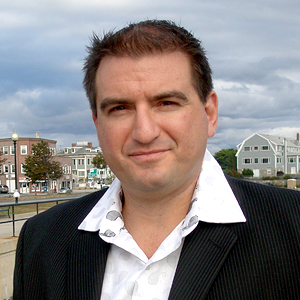
Attorney Marc Randazza.
A lot of outcry from domain investors seems to stem from the recent UDRP decision on Pinsex.com and Pingay.com, filed and won by Pinterest.
The unfortunate thing, is that most of the negative commentary on it is just making people in the domain industry appear less informed about the whole UDRP process, and how to best respond to a UDRP.
We reached out to IP attorney, Marc Randazza, who shared his thoughts on the case.
Said Marc:
“This case definitely could have been won. However, the respondent made some very key mistakes that cost him a very large and lucrative business. The first mistake he made was selecting a domain name that was similar to a famous trademark AND making his site look and feel like that other site. Pinsex and Pingay are not confusingly similar to Pinterest. But, when you create a website that looks a lot like Pinterest and you use a domain that even invokes theirs, you will lose a fair share of arbitrators.”
In other words, the Pinsex.com and Pingay.com case was not impossible to win, but it just made it a little more difficult to win the heart and mind of the sole panelist.
Marc points out another mistake committed by the defense team of the Respondent:
“The first argument they lead off with is “Pin is generic.” Genericness is almost never the right argument. “Pin” is generic for what? PINS. It is not generic for a website with user-uploaded photos. Sort of like “Apple” is generic for a specific type of fruit. It is NOT generic for computers. It isn’t that genericness is not a good argument sometimes. But, most of the time that I hear someone say “but this is generic,” I presume that they have no idea what they are talking about.”
An angle the law firm representing the Respondent could have taken, is to challenge the right to PINTEREST as a trademark.
According to Marc:
“Normally, that would be a foolish argument, but the UK Trademark office recently denied Pinterest rights in the UK, because of a pre-existing user. It appears that the Respondent’s defense was either unaware of that decision, or they failed to appreciate its importance.”
The similarity of the pages between the two domains / web sites and that of Pinterest, was definitely one of the least smart elements presented during the defense, whereupon they included pictures of both pages which tends to suggest that one has ripped off the other.
The biggest mistake, according to Marc Randazza:
“They made the very clear mistake of failing to ask for a three member panel. A three member panel is key when you have a case like this one. And, asking for RDNH, in my opinion, almost always leads to failure in such cases. It gets you nothing except a more critical eye from the arbitrator. I know that everyone loves to cheer an RDNH finding, but given that there are no consequences for it, failure to deliver such a finding adds nothing of substance to the decision.”
Many thanks to Marc Randazza of the Randazza Legal Group for his insight on the case.
Copyright © 2025 DomainGang.com · All Rights Reserved.









